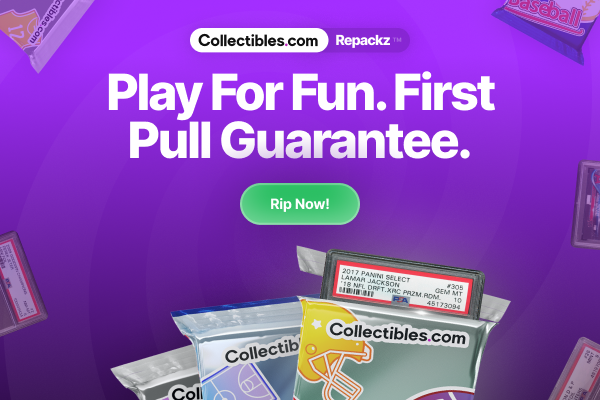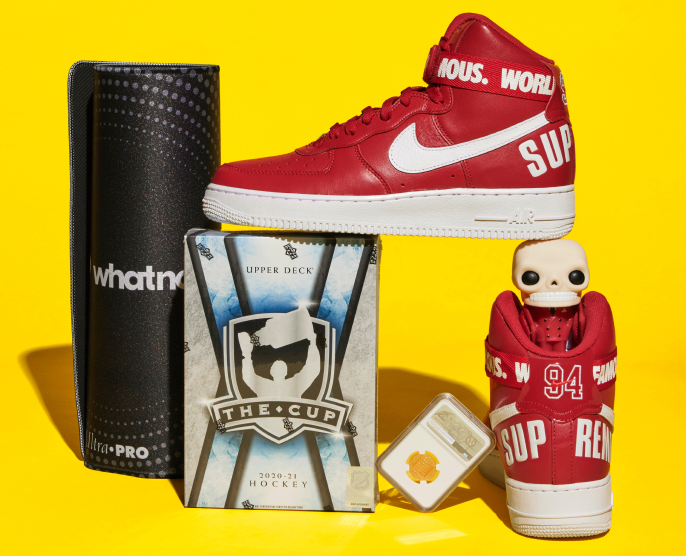
Fanatics Trading Cards to Change the Hobby Landscape for MLB, NFL & NBA Collectors
Big changes are on the horizon for the hobby now that Fanatics has reached an agreement with Major League Baseball (MLB) to produce cards, ending Topps' exclusive. Through the newly-created Fanatics Trading Cards, the apparel company also has long-term card deals in place with the Major League Baseball Players Association (MLBPA), the National Basketball Association (NBA), the National Basketball Players Association (NBPA), and the NFL Players Association (NFLPA). Each group holds equity in the new Fanatics card company.
The shocking development marks a big shift as all three professional card licenses are currently exclusives. Topps holds the MLB/MLBPA license and Panini holds the MLBPA, NBA/NBPA and NFL/NFLPA licenses.
The Wall Street Journal reported that the Fanatics-MLB talks have been ongoing for months, but Topps was only officially informed on August 19, when the news initially broke. The MLBPA has already passed along early details to players about the arrangement, which is 10 times larger than any previous deal for the union.
Topps, the dominant player in baseball cards, was moving swiftly toward going public unaware that its longtime partners in baseball were secretly being courted by Fanatics https://t.co/1ruWjpkbcw
— The Wall Street Journal (@WSJ) August 21, 2021
Topps, the iconic baseball card producer since 1951, had made plans to go public via special purpose acquisition company (SPAC) Mudrick II, but this was quickly terminated following the news about the Fanatics deals.
Despite the sudden shift of power, these changes won't take place immediately. Fanatics' MLBPA deal reportedly starts in 2023 and Topps' MLB exclusive goes through 2025, leaving a period of uncertainty as to exactly how Topps will proceed during the overlap. Meanwhile, the Panini NBPA deal ends in 2025 and Panini's NFLPA deal finishes in 2026.
However, once Fanatics takes over, it seems that the licenses aren't going anywhere for a long time as the NFLPA deal reportedly lasts for 20 years. It appears that the other deals are also of similar length (15 to 20 years).
Fanatics holds more than 80% ownership of the new card company, Fanatics Trading Cards, with a valuation of $10.4 billion. The remaining ownership is held by the leagues and unions.
The new Fanatics-led venture that upended the sports trading-card industry just a month ago raised money in a round of funding that values the business at $10.4 billion https://t.co/AISSHT20Uy
— The Wall Street Journal (@WSJ) September 29, 2021
In terms of leadership, Josh Luber is on board as "co-founder and chief vision officer." Collectors might recognize Luber as the co-founder and former CEO of StockX, a sneaker reselling website.
According to CNBC, "Fanatics’ plan for the physical trading card space is to expand it by opening the market to leverage it more via direct-to-consumer offerings, according to people familiar with the matter. For example, should collectors purchase a trading card, they’ll be able to insure the asset, grade, store and even put them on a marketplace to sell or trade — all through Fanatics."
Already a major sports apparel retailer, Fanatics has gotten into sports memorabilia in recent years, including signing many player exclusives. Michael Rubin, the majority owner of Fanatics' parent company (Kynetic), is also the co-owner of the Philadelphia 76ers and New Jersey Devils.
UPDATE (1/3/2022): Fanatics has reportedly reached an agreement to purchase Topps.
Fanatics Pried Baseball Cards from Topps. Now Fanatics is Buying Topps. https://t.co/zdSARfl4Eg #collect #thehobby
— Cardboard Connection (@sportscards) January 4, 2022

 | Making purchases through affiliate links can earn the site a commission |




































JOHN HERLING
I hope that Fanatics’ football cards will be an improvement over those produced by Panini. Football sets need to be a lot larger (over 800 cards each) than they have been, with no variations, no specials, and no undrafted free agent rookies. It would also be helpful if rookie quarterbacks drafted in the sixth round were not included, since they almost never make teams’ rosters.